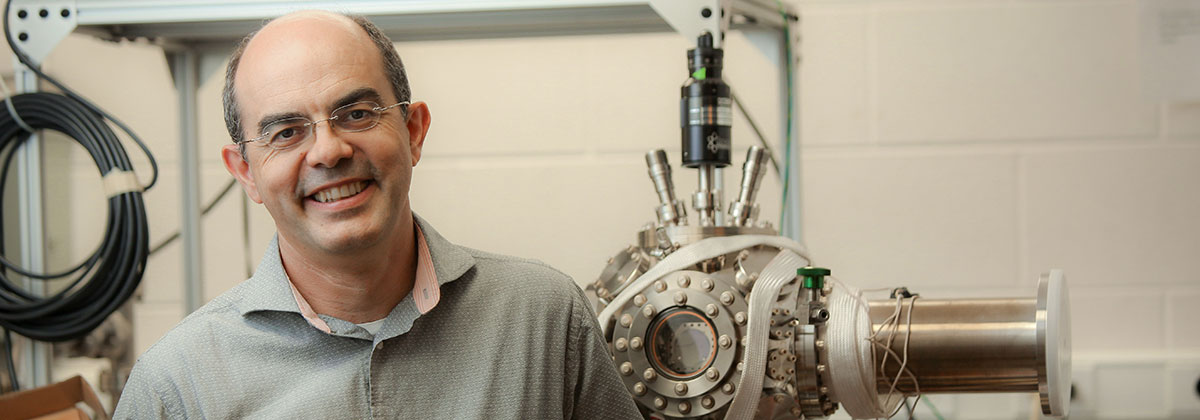General Areas of Research
- Theory and experimental verification of fundamental charged-particle beam dynamics
- Accelerator and beam line design and analysis
- High-performance beam physics computations
- Beam instrumentation and diagnostics

NIU is home to one of the best university accelerator physics programs in the nation. The program benefits from the close proximity of major accelerator research facilities at Fermi National Accelerator Laboratory and Argonne National Laboratory. The faculty members associated with the program collaborate with these laboratories and with colleagues from around the world in high-priority accelerator projects and experiments. They also teach accelerator and beam physics courses at NIU.
The Accelerator and Beam Physics group is also a member of the Chicagoland Accelerator Science Traineeship (CAST) consortium, offering fellowships to engage in work performed at the nearby national laboratories.
Another mission of the group includes mapping new techniques developed for the study of nonequilibrium beams onto diverse problems in astrophysics, plasmas, fluids and engineering disciplines.
| Faculty | Research Topics | Publications |
|---|---|---|
| Oksana Chubenko |
|
|
| Bela Erdelyi |
|
|
| Gwanghui Ha |
|
|
| Xueying Lu |
|
Among the largest and most expensive of all scientific instruments, particle accelerators have impacts in many areas of science and society.
The NIU accelerator and beam physics group focuses on diverse aspects of theoretical, computational and experimental particle beam physics:
When founded, the group's research included laboratory experiments involving novel beam diagnostics that were performed at the Fermilab/NICADD Photoinjector Laboratory (FNPL). Collaborations with the University of Maryland in planning experiments on the fundamental dynamics of space charge in beams were performed at the University of Maryland Electron Ring (UMER).
Research at NIU has revealed that the hierarchies of temporal and spatial scales are critically important drivers of the evolution of beams with space charge: details do matter. Consequently, we began intensive efforts to develop a new space-charge algorithm that preserves these hierarchies while still enabling efficient computations. The underlying methodology is multiresolution analysis, e.g., the application of wavelets.
The study of Hamiltonian systems in general led to the development of two seemingly different branches of mathematics: the theory of dynamical systems and symplectic geometry. Both fields have undergone dramatic development, and it is becoming clear that there is a common core which could lead to a new field called "symplectic dynamics." One of the best test beds of this new field is the accelerator (or particle beams in general), and this connection is being investigated at NIU.
The NIU Department of Physics offers graduate-level courses and degree programs in accelerator and beam physics. Candidates for the degrees of Master of Science in physics and Doctor of Philosophy in physics with an accelerator and beam physics emphasis must meet the general requirements set forth by the Department of Physics for these degrees. They're expected to take accelerator/beam-related coursework as a major part of their electives.
Elective courses relevant to accelerator and beam physics include:
Accelerator and beam physics students often attend the U.S. Particle Accelerator School (USPAS), which is held twice annually. USPAS offers many higher-level graduate physics courses in the discipline. NIU credit for participation in USPAS courses can be arranged through the Department of Physics with sufficient notice.
Qualified students may also apply for support through the CAST program, providing tuition reimbursment and research assistantships at local national laboratories or industrial partners.
Both the NICADD Compute Cluster as well as the NIU Center for Research Computing and Data are available to NICADD staff, students and researchers for high performance computing needs.